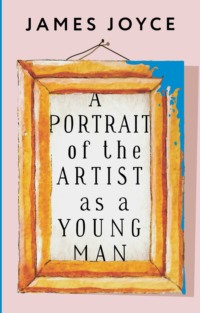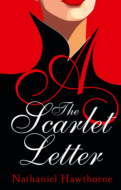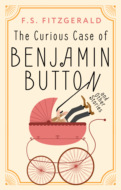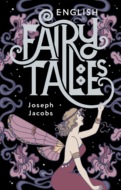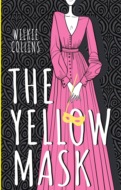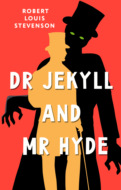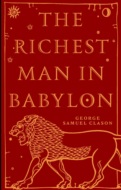Kitabı oku: «A Portrait of the Artist as a Young Man / Портрет художника в юности», sayfa 3
– Ask him, he said.
The fellows looked there and then said:
– Why him?
– Is he in it?
Athy lowered his voice and said:
– Do you know why those fellows scut? I will tell you but you must not let on you know.
– Tell us, Athy. Go on. You might if you know.
He paused for a moment and then said mysteriously:
– They were caught with Simon Moonan and Tusker Boyle in the square one night.
The fellows looked at him and asked:
– Caught?
– What doing?
Athy said:
– Smugging.
All the fellows were silent: and Athy said:
– And that's why.
Stephen looked at the faces of the fellows but they were all looking across the playground. He wanted to ask somebody about it. What did that mean about the smugging in the square? Why did the five fellows out of the higher line run away for that? It was a joke, he thought. Simon Moonan had nice clothes and one night he had shown him a ball of creamy sweets that the fellows of the football fifteen had rolled down to him along the carpet in the middle of the refectory when he was at the door. It was the night of the match against the Bective Rangers and the ball was made just like a red and green apple only it opened and it was full of the creamy sweets. And one day Boyle had said that an elephant had two tuskers instead of two tusks and that was why he was called Tusker Boyle but some fellows called him Lady Boyle because he was always at his nails, paring them.
Eileen had long thin cool white hands too because she was a girl. They were like ivory; only soft. That was the meaning of Tower of Ivory but protestants could not understand it and made fun of it. One day he had stood beside her looking into the hotel grounds. A waiter was running up a trail of bunting on the flagstaff and a fox terrier was scampering to and fro on the sunny lawn. She had put her hand into his pocket where his hand was and he had felt how cool and thin and soft her hand was. She had said that pockets were funny things to have: and then all of a sudden she had broken away and had run laughing down the sloping curve of the path. Her fair hair had streamed out behind her like gold in the sun. Tower of Ivory. House of Gold. By thinking of things you could understand them.
But why in the square? You went there when you wanted to do something. It was all thick slabs of slate and water trickled all day out of tiny pinholes and there was a queer smell of stale water there. And behind the door of one of the closets there was a drawing in red pencil of a bearded man in a Roman dress with a brick in each hand and underneath was the name of the drawing:
Balbus was building a wall.
Some fellow had drawn it there for a cod. It had a funny face but it was very like a man with a beard. And on the wall of another closet there was written in backhand in beautiful writing:
Julius Cæsar wrote The Calico Belly.
Perhaps that was why they were there because it was a place where some fellows wrote things for cod. But all the same it was queer what Athy said and the way he said it. It was not a cod because they had run away. He looked with the others across the playground and began to feel afraid.
At last Fleming said:
– And we are all to be punished for what other fellows did?
– I won't come back, see if I do, Cecil Thunder said. Three days' silence in the refectory and sending us up for six and eight every minute.
– Yes, said Wells. And old Barrett has a new way of twisting the note so that you can't open it and fold it again to see how many ferulæ you are to get. I won't come back too.
– Yes, said Cecil Thunder, and the prefect of studies was in second of grammar this morning.
– Let us get up a rebellion, Fleming said. Will we?
All the fellows were silent. The air was very silent and you could hear the cricket bats but more slowly than before: pick, pock.
Wells asked:
– What is going to be done to them?
– Simon Moonan and Tusker are going to be flogged, Athy said, and the fellows in the higher line got their choice of flogging or being expelled.
– And which are they taking? asked the fellow who had spoken first.
– All are taking expulsion except Corrigan, Athy answered. He's going to be flogged by Mr Gleeson.
– I know why, Cecil Thunder said. He is right and the other fellows are wrong because a flogging wears off after a bit but a fellow that has been expelled from college is known all his life on account of it. Besides Gleeson won't flog him hard.
– It's best of his play not to, Fleming said.
– I wouldn't like to be Simon Moonan and Tusker, Cecil Thunder said. But I don't believe they will be flogged. Perhaps they will be sent up for twice nine.
– No, no, said Athy. They'll both get it on the vital spot.
Wells rubbed himself and said in a crying voice:
– Please, sir, let me off!
Athy grinned and turned up the sleeves of his jacket, saying:
It can't be helped;
It must be done.
So down with your breeches
And out with your bum.
The fellows laughed; but he felt that they were a little afraid. In the silence of the soft grey air he heard the cricket bats from here and from there: pock. That was a sound to hear but if you were hit then you would feel a pain. The pandybat made a sound too but not like that. The fellows said it was made of whalebone and leather with lead inside: and he wondered what was the pain like. There were different kinds of sounds. A long thin cane would have a high whistling sound and he wondered what was that pain like. It made him shivery to think of it and cold: and what Athy said too. But what was there to laugh at in it? It made him shivery: but that was because you always felt like a shiver when you let down your trousers. It was the same in the bath when you undressed yourself. He wondered who had to let them down, the master or the boy himself. O how could they laugh about it that way?
He looked at Athy's rolled-up sleeves and knuckly inky hands. He had rolled up his sleeves to show how Mr Gleeson would roll up his sleeves. But Mr Gleeson had round shiny cuffs and clean white wrists and fattish white hands and the nails of them were long and pointed. Perhaps he pared them too like Lady Boyle. But they were terribly long and pointed nails. So long and cruel they were though the white fattish hands were not cruel but gentle. And though he trembled with cold and fright to think of the cruel long nails and of the high whistling sound of the cane and of the chill you felt at the end of your shirt when you undressed yourself yet he felt a feeling of queer quiet pleasure inside him to think of the white fattish hands, clean and strong and gentle. And he thought of what Cecil Thunder had said; that Mr Gleeson would not flog Corrigan hard. And Fleming had said he would not because it was best of his play not to. But that was not why.
A voice from far out on the playground cried:
– All in!
And other voices cried:
– All in! All in!
During the writing lesson he sat with his arms folded, listening to the slow scraping of the pens. Mr Harford went to and fro making little signs in red pencil and sometimes sitting beside the boy to show him how to hold his pen. He had tried to spell out the headline for himself though he knew already what it was for it was the last of the book. Zeal without prudence is like a ship adrift. But the lines of the letters were like fine invisible threads and it was only by closing his right eye tight and staring out of the left eye that he could make out the full curves of the capital.
But Mr Harford was very decent and never got into a wax. All the other masters got into dreadful waxes. But why were they to suffer for what fellows in the higher line did? Wells had said that they had drunk some of the altar wine out of the press in the sacristy and that it had been found out who had done it by the smell. Perhaps they had stolen a monstrance to run away with and sell it somewhere. That must have been a terrible sin, to go in there quietly at night, to open the dark press and steal the flashing gold thing into which God was put on the altar in the middle of flowers and candles at benediction while the incense went up in clouds at both sides as the fellow swung the censer and Dominic Kelly sang the first part by himself in the choir. But God was not in it of course when they stole it. But still it was a strange and a great sin even to touch it. He thought of it with deep awe; a terrible and strange sin: it thrilled him to think of it in the silence when the pens scraped lightly. But to drink the altar wine out of the press and be found out by the smell was a sin too: but it was not terrible and strange. It only made you feel a little sickish on account of the smell of the wine. Because on the day when he had made his first holy communion in the chapel he had shut his eyes and opened his mouth and put out his tongue a little: and when the rector had stooped down to give him the holy communion he had smelt a faint winy smell off the rector's breath after the wine of the mass. The word was beautiful: wine. It made you think of dark purple because the grapes were dark purple that grew in Greece outside houses like white temples. But the faint smell of the rector's breath had made him feel a sick feeling on the morning of his first communion. The day of your first communion was the happiest day of your life. And once a lot of generals had asked Napoleon what was the happiest day of his life. They thought he would say the day he won some great battle or the day he was made an emperor. But he said:
– Gentlemen, the happiest day of my life was the day on which I made my first holy communion.
Father Arnall came in and the Latin lesson began and he remained still leaning on the desk with his arms folded. Father Arnall gave out the themebooks and he said that they were scandalous and that they were all to be written out again with the corrections at once. But the worst of all was Fleming's theme because the pages were stuck together by a blot: and Father Arnall held it up by a corner and said it was an insult to any master to send him up such a theme. Then he asked Jack Lawton to decline the noun mare and Jack Lawton stopped at the ablative singular and could not go on with the plural.
– You should be ashamed of yourself, said Father Arnall sternly. You, the leader of the class!
Then he asked the next boy and the next and the next. Nobody knew. Father Arnall became very quiet, more and more quiet as each boy tried to answer it and could not. But his face was blacklooking and his eyes were staring though his voice was so quiet. Then he asked Fleming and Fleming said that the word had no plural. Father Arnall suddenly shut the book and shouted at him:
– Kneel out there in the middle of the class. You are one of the idlest boys I ever met. Copy out your themes again the rest of you.
Fleming moved heavily out of his place and knelt between the two last benches. The other boys bent over their themebooks and began to write. A silence filled the classroom and Stephen, glancing timidly at Father Arnall's dark face, saw that it was a little red from the wax he was in.
Was that a sin for Father Arnall to be in a wax or was he allowed to get into a wax when the boys were idle because that made them study better or was he only letting on to be in a wax? It was because he was allowed because a priest would know what a sin was and would not do it. But if he did it one time by mistake what would he do to go to confession? Perhaps he would go to confession to the minister. And if the minister did it he would go to the rector: and the rector to the provincial: and the provincial to the general of the jesuits. That was called the order: and he had heard his father say that they were all clever men. They could all have become high-up people in the world if they had not become jesuits. And he wondered what Father Arnall and Paddy Barrett would have become and what Mr McGlade and Mr Gleeson would have become if they had not become jesuits. It was hard to think what because you would have to think of them in a different way with different coloured coats and trousers and with beards and moustaches and different kinds of hats.
The door opened quietly and closed. A quick whisper ran through the class: the prefect of studies. There was an instant of dead silence and then the loud crack of a pandybat on the last desk. Stephen's heart leapt up in fear.
– Any boys want flogging here, Father Arnall? cried the prefect of studies. Any lazy idle loafers that want flogging in this class?
He came to the middle of the class and saw Fleming on his knees.
– Hoho! he cried. Who is this boy? Why is he on his knees? What is your name, boy?
– Fleming, sir.
– Hoho, Fleming! An idler of course. I can see it in your eye. Why is he on his knees, Father Arnall?
– He wrote a bad Latin theme, Father Arnall said, and he missed all the questions in grammar.
– Of course he did! cried the prefect of studies, of course he did! A born idler! I can see it in the corner of his eye.
He banged his pandybat down on the desk and cried:
– Up, Fleming! Up, my boy!
Fleming stood up slowly.
– Hold out! cried the prefect of studies.
Fleming held out his hand. The pandybat came down on it with a loud smacking sound: one, two, three, four, five, six.
– Other hand!
The pandybat came down again in six loud quick smacks.
– Kneel down! cried the prefect of studies.
Fleming knelt down, squeezing his hands under his armpits, his face contorted with pain, but Stephen knew how hard his hands were because Fleming was always rubbing rosin into them. But perhaps he was in great pain for the noise of the pandybat was terrible. Stephen's heart was beating and fluttering.
– At your work, all of you! shouted the prefect of studies. We want no lazy idle loafers here, lazy idle little schemers. At your work, I tell you. Father Dolan will be in to see you every day. Father Dolan will be in tomorrow.
He poked one of the boys in the side with his pandybat, saying:
– You, boy! When will Father Dolan be in again?
– Tomorrow, sir, said Tom Furlong's voice.
– Tomorrow and tomorrow and tomorrow, said the prefect of studies. Make up your minds for that. Every day Father Dolan. Write away. You, boy, who are you?
Stephen's heart jumped suddenly.
– Dedalus, sir.
– Why are you not writing like the others?
– I… my…
He could not speak with fright.
– Why is he not writing, Father Arnall?
– He broke his glasses, said Father Arnall, and I exempted him from work.
– Broke? What is this I hear? What is this? Your name is? said the prefect of studies.
– Dedalus, sir.
– Out here, Dedalus. Lazy little schemer. I see schemer in your face. Where did you break your glasses?
Stephen stumbled into the middle of the class, blinded by fear and haste.
– Where did you break your glasses? repeated the prefect of studies.
– The cinderpath, sir.
– Hoho! The cinderpath! cried the prefect of studies. I know that trick.
Stephen lifted his eyes in wonder and saw for a moment Father Dolan's whitegrey not young face, his baldy whitegrey head with fluff at the sides of it, the steel rims of his spectacles and his no-coloured eyes looking through the glasses. Why did he say he knew that trick?
– Lazy idle little loafer! cried the prefect of studies. Broke my glasses! An old schoolboy trick! Out with your hand this moment!
Stephen closed his eyes and held out in the air his trembling hand with the palm upwards. He felt the prefect of studies touch it for a moment at the fingers to straighten it and then the swish of the sleeve of the soutane as the pandybat was lifted to strike. A hot burning stinging tingling blow like the loud crack of a broken stick made his trembling hand crumple together like a leaf in the fire: and at the sound and the pain scalding tears were driven into his eyes. His whole body was shaking with fright, his arm was shaking and his crumpled burning livid hand shook like a loose leaf in the air. A cry sprang to his lips, a prayer to be let off. But though the tears scalded his eyes and his limbs quivered with pain and fright he held back the hot tears and the cry that scalded his throat.
– Other hand! shouted the prefect of studies.
Stephen drew back his maimed and quivering right arm and held out his left hand. The soutane sleeve swished again as the pandybat was lifted and a loud crashing sound and a fierce maddening tingling burning pain made his hand shrink together with the palms and fingers in a livid quivering mass. The scalding water burst forth from his eyes and, burning with shame and agony and fear, he drew back his shaking arm in terror and burst out into a whine of pain. His body shook with a palsy of fright and in shame and rage he felt the scalding cry come from his throat and the scalding tears falling out of his eyes and down his flaming cheeks.
– Kneel down, cried the prefect of studies.
Stephen knelt down quickly pressing his beaten hands to his sides. To think of them beaten and swollen with pain all in a moment made him feel so sorry for them as if they were not his own but someone else's that he felt sorry for. And as he knelt, calming the last sobs in his throat and feeling the burning tingling pain pressed into his sides, he thought of the hands which he had held out in the air with the palms up and of the firm touch of the prefect of studies when he had steadied the shaking fingers and of the beaten swollen reddened mass of palm and fingers that shook helplessly in the air.
– Get at your work, all of you, cried the prefect of studies from the door. Father Dolan will be in every day to see if any boy, any lazy idle little loafer wants flogging. Every day. Every day.
The door closed behind him.
The hushed class continued to copy out the themes. Father Arnall rose from his seat and went among them, helping the boys with gentle words and telling them the mistakes they had made. His voice was very gentle and soft. Then he returned to his seat and said to Fleming and Stephen:
– You may return to your places, you two.
Fleming and Stephen rose and, walking to their seats, sat down. Stephen, scarlet with shame, opened a book quickly with one weak hand and bent down upon it, his face close to the page.
It was unfair and cruel because the doctor had told him not to read without glasses and he had written home to his father that morning to send him a new pair. And Father Arnall had said that he need not study till the new glasses came. Then to be called a schemer before the class and to be pandied when he always got the card for first or second and was the leader of the Yorkists! How could the prefect of studies know that it was a trick? He felt the touch of the prefect's fingers as they had steadied his hand and at first he had thought he was going to shake hands with him because the fingers were soft and firm: but then in an instant he had heard the swish of the soutane sleeve and the crash. It was cruel and unfair to make him kneel in the middle of the class then: and Father Arnall had told them both that they might return to their places without making any difference between them. He listened to Father Arnall's low and gentle voice as he corrected the themes. Perhaps he was sorry now and wanted to be decent. But it was unfair and cruel. The prefect of studies was a priest but that was cruel and unfair. And his whitegrey face and the no-coloured eyes behind the steel rimmed spectacles were cruel looking because he had steadied the hand first with his firm soft fingers and that was to hit it better and louder.
– It's a stinking mean thing, that's what it is, said Fleming in the corridor as the classes were passing out in file to the refectory, to pandy a fellow for what is not his fault.
– You really broke your glasses by accident, didn't you? Nasty Roche asked.
Stephen felt his heart filled by Fleming's words and did not answer.
– Of course he did! said Fleming. I wouldn't stand it. I'd go up and tell the rector on him.
– Yes, said Cecil Thunder eagerly, and I saw him lift the pandybat over his shoulder and he's not allowed to do that.
– Did they hurt you much? Nasty Roche asked.
– Very much, Stephen said.
– I wouldn't stand it, Fleming repeated, from Baldyhead or any other Baldyhead. It's a stinking mean low trick, that's what it is. I'd go straight up to the rector and tell him about it after dinner.
– Yes, do. Yes, do, said Cecil Thunder.
– Yes, do. Yes, go up and tell the rector on him, Dedalus, said Nasty Roche, because he said that he'd come in tomorrow again and pandy you.
– Yes, yes. Tell the rector, all said.
And there were some fellows out of second of grammar listening and one of them said:
– The senate and the Roman people declared that Dedalus had been wrongly punished.
It was wrong; it was unfair and cruel; and, as he sat in the refectory, he suffered time after time in memory the same humiliation until he began to wonder whether it might not really be that there was something in his face which made him look like a schemer and he wished he had a little mirror to see. But there could not be; and it was unjust and cruel and unfair.
He could not eat the blackish fish fritters they got on Wednesdays in Lent and one of his potatoes had the mark of the spade in it. Yes, he would do what the fellows had told him. He would go up and tell the rector that he had been wrongly punished. A thing like that had been done before by somebody in history, by some great person whose head was in the books of history. And the rector would declare that he had been wrongly punished because the senate and the Roman people always declared that the men who did that had been wrongly punished. Those were the great men whose names were in Richmal Magnall's Questions. History was all about those men and what they did and that was what Peter Parley's Tales about Greece and Rome were all about. Peter Parley himself was on the first page in a picture. There was a road over a heath with grass at the side and little bushes: and Peter Parley had a broad hat like a protestant minister and a big stick and he was walking fast along the road to Greece and Rome.
It was easy what he had to do. All he had to do was when the dinner was over and he came out in his turn to go on walking but not out to the corridor but up the staircase on the right that led to the castle. He had nothing to do but that; to turn to the right and walk fast up the staircase and in half a minute he would be in the low dark narrow corridor that led through the castle to the rector's room. And every fellow had said that it was unfair, even the fellow out of second of grammar who had said that about the senate and the Roman people.
What would happen? He heard the fellows of the higher line stand up at the top of the refectory and heard their steps as they came down the matting: Paddy Rath and Jimmy Magee and the Spaniard and the Portuguese and the fifth was big Corrigan who was going to be flogged by Mr Gleeson. That was why the prefect of studies had called him a schemer and pandied him for nothing: and, straining his weak eyes, tired with the tears, he watched big Corrigan's broad shoulders and big hanging black head passing in the file. But he had done something and besides Mr Gleeson would not flog him hard: and he remembered how big Corrigan looked in the bath. He had skin the same colour as the turfcoloured bogwater in the shallow end of the bath and when he walked along the side his feet slapped loudly on the wet tiles and at every step his thighs shook a little because he was fat.
The refectory was half empty and the fellows were still passing out in file. He could go up the staircase because there was never a priest or a prefect outside the refectory door. But he could not go. The rector would side with the prefect of studies and think it was a schoolboy trick and then the prefect of studies would come in every day the same, only it would be worse because he would be dreadfully waxy at any fellow going up to the rector about him. The fellows had told him to go but they would not go themselves. They had forgotten all about it. No, it was best to forget all about it and perhaps the prefect of studies had only said he would come in. No, it was best to hide out of the way because when you were small and young you could often escape that way.
The fellows at his table stood up. He stood up and passed out among them in the file. He had to decide. He was coming near the door. If he went on with the fellows he could never go up to the rector because he could not leave the playground for that. And if he went and was pandied all the same all the fellows would make fun and talk about young Dedalus going up to the rector to tell on the prefect of studies.
He was walking down along the matting and he saw the door before him. It was impossible: he could not. He thought of the baldy head of the prefect of studies with the cruel no-coloured eyes looking at him and he heard the voice of the prefect of studies asking him twice what his name was. Why could he not remember the name when he was told the first time? Was he not listening the first time or was it to make fun out of the name? The great men in the history had names like that and nobody made fun of them. It was his own name that he should have made fun of if he wanted to make fun. Dolan: it was like the name of a woman who washed clothes.
He had reached the door and, turning quickly up to the right, walked up the stairs; and, before he could make up his mind to come back, he had entered the low dark narrow corridor that led to the castle. And as he crossed the threshold of the door of the corridor he saw, without turning his head to look, that all the fellows were looking after him as they went filing by.
He passed along the narrow dark corridor, passing little doors that were the doors of the rooms of the community. He peered in front of him and right and left through the gloom and thought that those must be portraits. It was dark and silent and his eyes were weak and tired with tears so that he could not see. But he thought they were the portraits of the saints and great men of the order who were looking down on him silently as he passed: saint Ignatius Loyola holding an open book and pointing to the words Ad Majorem Dei Gloriam in it, saint Francis Xavier pointing to his chest, Lorenzo Ricci with his berretta on his head like one of the prefects of the lines, the three patrons of holy youth, saint Stanislaus Kostka, saint Aloysius Gonzago and Blessed John Berchmans, all with young faces because they died when they were young, and Father Peter Kenny sitting in a chair wrapped in a big cloak.
He came out on the landing above the entrance hall and looked about him. That was where Hamilton Rowan had passed and the marks of the soldiers' slugs were there. And it was there that the old servants had seen the ghost in the white cloak of a marshal.
An old servant was sweeping at the end of the landing. He asked him where was the rector's room and the old servant pointed to the door at the far end and looked after him as he went on to it and knocked.
There was no answer. He knocked again more loudly and his heart jumped when he heard a muffled voice say:
– Come in!
He turned the handle and opened the door and fumbled for the handle of the green baize door inside. He found it and pushed it open and went in.
He saw the rector sitting at a desk writing. There was a skull on the desk and a strange solemn smell in the room like the old leather of chairs.
His heart was beating fast on account of the solemn place he was in and the silence of the room: and he looked at the skull and at the rector's kind-looking face.
– Well, my little man, said the rector, what is it?
Stephen swallowed down the thing in his throat and said:
– I broke my glasses, sir.
The rector opened his mouth and said:
– O!
Then he smiled and said:
– Well, if we broke our glasses we must write home for a new pair.
– I wrote home, sir, said Stephen, and Father Arnall said I am not to study till they come.
– Quite right! said the rector.
Stephen swallowed down the thing again and tried to keep his legs and his voice from shaking.
– But, sir…
– Yes?
– Father Dolan came in today and pandied me because I was not writing my theme.
The rector looked at him in silence and he could feel the blood rising to his face and the tears about to rise to his eyes.
The rector said:
– Your name is Dedalus, isn't it?
– Yes, sir.
– And where did you break your glasses?
– On the cinderpath, sir. A fellow was coming out of the bicycle house and I fell and they got broken. I don't know the fellow's name.
The rector looked at him again in silence. Then he smiled and said:
– O, well, it was a mistake, I am sure Father Dolan did not know.
– But I told him I broke them, sir, and he pandied me.
– Did you tell him that you had written home for a new pair? the rector asked.
– No, sir.
– O well then, said the rector, Father Dolan did not understand. You can say that I excuse you from your lessons for a few days.
Stephen said quickly for fear his trembling would prevent him:
– Yes, sir, but Father Dolan said he will come in tomorrow to pandy me again for it.
– Very well, the rector said, it is a mistake and I shall speak to Father Dolan myself. Will that do now?
Stephen felt the tears wetting his eyes and murmured:
– O yes sir, thanks.
The rector held his hand across the side of the desk where the skull was and Stephen, placing his hand in it for a moment, felt a cool moist palm.
– Good day now, said the rector, withdrawing his hand and bowing.
– Good day, sir, said Stephen.
He bowed and walked quietly out of the room, closing the doors carefully and slowly.
But when he had passed the old servant on the landing and was again in the low narrow dark corridor he began to walk faster and faster. Faster and faster he hurried on through the gloom excitedly. He bumped his elbow against the door at the end and, hurrying down the staircase, walked quickly through the two corridors and out into the air.
He could hear the cries of the fellows on the playgrounds. He broke into a run and, running quicker and quicker, ran across the cinderpath and reached the third line playground, panting.
Ücretsiz ön izlemeyi tamamladınız.
